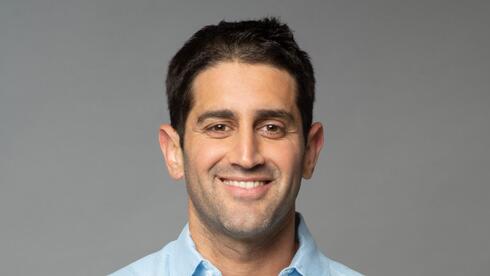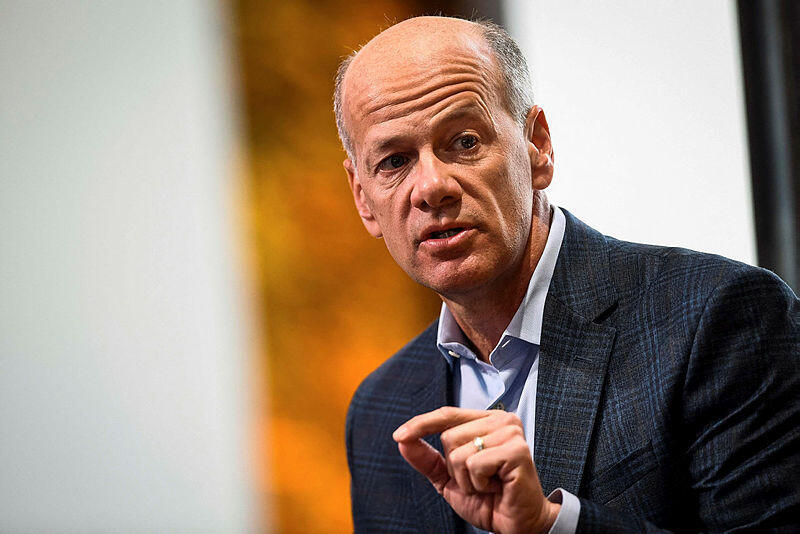
Bank tank: SVB debacle presents painful lessons for Israeli high-tech
The American bank did not have to collapse, but poor communication plus an unfortunate choice of words resulted in 40 years of high-tech activity being erased in a flash
The story of the dramatic collapse of Silicon Valley Bank (SVB) should greatly alarm Israel. Not necessarily because of the expected damage to the high-tech industry, but rather as a glimpse of a much broader possible future scenario. The fall of the bank illustrates the centrality and power of psychology in the financial world and the speed with which trust built up over decades can be lost.
SVB is a bit like Israel: an unprecedented economic success that was built from nothing entirely on the high-tech vision and its realization. Just as the high-tech industry began to develop in Israel in the 1980s, the bank was also established in 1983 when it recognized the lack of solutions the traditional banking system had for the first startups.
The success was quick because of the identification of the unique niche and already in 1988 the bank was listed on Nasdaq and since then its fate was tied to it. In the crisis of 2000, it was hit and its stock plummeted. But it was precisely in 2008 that it recognized the opportunity in Israel, which was then an island of stability in the turbulent world of the financial crisis, and SVB opened its first branch outside the U.S. here. SVB has become synonymous with the high-tech world just as Israel has with high-tech success in recent decades. Every investor knew that they had to be in Israel, and yes, they always also had an account at SVB.
The boom of the pandemic and the months that followed were one of the best periods of business in the history of SVB, which tripled its assets and, accordingly, its stock also jumped by hundreds of percent. The timing of SVB's collapse is also nothing less than symbolic for Israel, because like the bank's management, the leadership in Israel is also currently busy convincing the world that everything is fine with us. In the case of the bank, it ended badly, because the more it tried to convince the outside world that there was no danger, the more anxious and fearful investors and account holders grew.
SVB was still ranked as one of the best banks in February
When senior economists warn the government that a rapid destabilization event may occur, they are talking about a scenario just like SVB's. At noon last Wednesday, it was another bank among many. Although already in the annual financial reports there were those who saw some problems in the balance sheet, no one pointed it out as a terminal illness. Only on February 14, less than a month before the collapse, SVB was ranked as one of the best banks in the U.S. by Forbes magazine, with factors such as stability and returns also being considered. On Wednesday, the bank announced the sale of its $21 billion bond portfolio, which resulted in a loss of $1.8 billion due to the sharp jump in interest rates that brought the bonds down. At the same time, in order to close the hole created by the loss, the bank set out to raise $2.25 billion in capital, already having a $500 million commitment from the investment fund General Atlantic, one of the most respected and reputable investment entities in the U.S.
In many ways this seemed like a routine message from a business entity that has problems, but also an available solution. The real problem came from the reports that leaked from the talks and the bank's complete dependence on one single sector. The announcement was accompanied by a four-page letter from SVB CEO Greg Becker, who caused plenty of discomfort with the number of times words related to stability were typed in bold". This stressed investors and the stock fell by 60% on Thursday. This is where the customers who were stressed also entered the picture and even more so when the CEO said "we helped you, now you help us."
The fate of the bank was decided when many venture capital funds ordered their portfolio companies to withdraw their funds from SVB.
On Thursday, the panicked customers asked to withdraw $42 billion and created the classic "run to the bank" event. On Friday, the FDIC, the American regulator responsible for the stability of banks, ordered the closure of SVB and trading in its stock was halted. Under American law, a deposit of up to $250,000 is insured, which means that it will be possible to withdraw this amount as early as Monday. But receiving amounts above this threshold depends on the realization of assets in the coming weeks. In the case of SVB, the insured amount is not relevant because these are not private customers, but business customers. According to the bank's latest report, 96% of the deposits in its accounts are greater than $250,000. At retail banks such as Bank of America, for example, only 32% have more than $250,000 in their accounts. Although SVB is considered one of the 20 largest banks in the U.S. in terms of assets, the number of its customers is very small and amounts to 37,500 accounts, so that on average means about $4 million per account.
SVB's situation was far from great, there were objective financial problems, but it did not have to collapse. Poor communication, unfortunate choice of words, and an unusual dependence on a handful of clients - mostly large venture capital funds - resulted in the bank becoming a persona non grata. The loss of confidence, which was also fueled by a credit rating downgrade, which as usual came after the horses had already fled the barn, was immediate and complete, erasing 40 years of work.
Startups in hysteria
SVB's main customers are startup companies and venture capital funds. It built its reputation as well as its success on handling startup companies that are not of interest to the big banks: companies that on the one hand raise money and therefore have deposits, but on the other hand do not have significant credit needs. Also, they lose over the years and it also takes a long time until they have income and flow that can be used to price a financing package. This created part of the problem that brought down the bank - with the many deposits that flowed into it during the high tide being used to build a portfolio of bonds. In 2022, the funding rounds dried up and companies resorted to withdrawing more and more money from their account. At one point, the bank had to realize part of its portfolio in order to meet withdrawals. Another risk factor that contributed to the withdrawals in recent months was the bank’s dependence on companies that operate in the crypto market. Many crypto companies that collapsed took the money out of the bank and deepened the need to realize the bond portfolio.
As companies grow and become profitable they move to the bigger banks such as JP Morgan or UBS. That is why most of the public Israeli companies already hold accounts in the major banks, sometimes in those that served as underwriters in their IPOs.
The most urgent problem for Israeli startup companies that hold deposits in SVB, and it is estimated that this includes almost all of them, is withdrawing funds from the account. On Thursday, many managers sent withdrawal instructions for the money, but most of them admitted that they only received a message that the transfer is "in process", so it is not possible to know whether the money has actually gone through. Some of those who asked to withdraw money said that they received only half of the amount they asked for. Contrary to expectations, the Israeli branch of the bank, which opened in 2008, did not respond to customers. The local branch is managed by David Cohen and Gadi Moshe, figures familiar to every beginning entrepreneur, but they are mainly responsible for marketing the bank's services. The bank's response could not be obtained over the weekend.
The advantage of the Israeli startups over their American counterparts is that most of them also have an account in one of the Israeli banks as part of LeumiTech, Poalim Hi-Tech or Discount Tech, subsidiaries of local banks that specialize in high-tech and historically compete with SVB. However, the salaries of employees in the U.S. are paid from the American account. This is the most immediate threat to the entire high-tech industry and it is the one that strengthens the estimate that there will be a buyer for the bank or a decision will be made on a bailout plan.
A bailout in this case will not even require a large cash infusion into the bank. It is also possible by purchasing SVB’s bond portfolio at a slightly higher price than the market and holding it until maturity. If there was no dramatic change since the end of 2022, the bank should have enough money to return all deposits to customers.
One of the biggest threats to the industry is not just access to money, but access to lines of credit. In fact, in the medium term, the cessation of SVB's activities could create a credit crunch in the high-tech industry and lead to significant damage, including the closing of companies and layoffs.
In the good times, startup companies rely less on credit, but in the last year, many of them have turned in this direction, mainly to extend the time until the next funding round so as not to damage their value. In fact, SVB is one of the prominent explanations for the fact that there were not many "downrounds" in Israel.
"SVB gave loans to startups at an interest rate of 4%-5%, even to losing companies, while 'regular' banks asked for 7%-8%," a venture capital investor told Calcalist. According to him, "the only requirement was that there be two venture capital funds that invested in the company under the assumption that if the company does not meet repayments, the funds will bail it out. In Israel, the banks are much more cautious, they want to see over a million dollars in ARR and another $2-3 million in the bank."
Another and more Israeli concern is a further slowdown in new high-tech investments because venture capital funds also had lines of credit at SVB that are now frozen. Although funds receive commitments from investors when they raise the fund, in practice the money does not go to them and sometimes they use credit lines for current investments in order not to call on the money from the investors (LP). With the closing of the bank, they will have to call for the money and it is uncertain that they will receive it quickly considering the fears of a further deterioration in the American economy and high-tech specifically.
"If the American regulator does not resolve this crisis within a week to 10 days, hundreds of companies will be closed, including Israeli ones," a partner in an American venture capital fund that is also active in Israel told Calcalist. "We started operating already on Thursday morning and managed to get quite a bit of the money out, ours as well as that of the portfolio companies." According to him, "Even before the collapse of SVB, there was an estimate that by the third quarter there would be many companies that would run out of money and would close down. The closure of the bank and the blocking of credit lines would speed up and worsen the pace of startup closures."
















